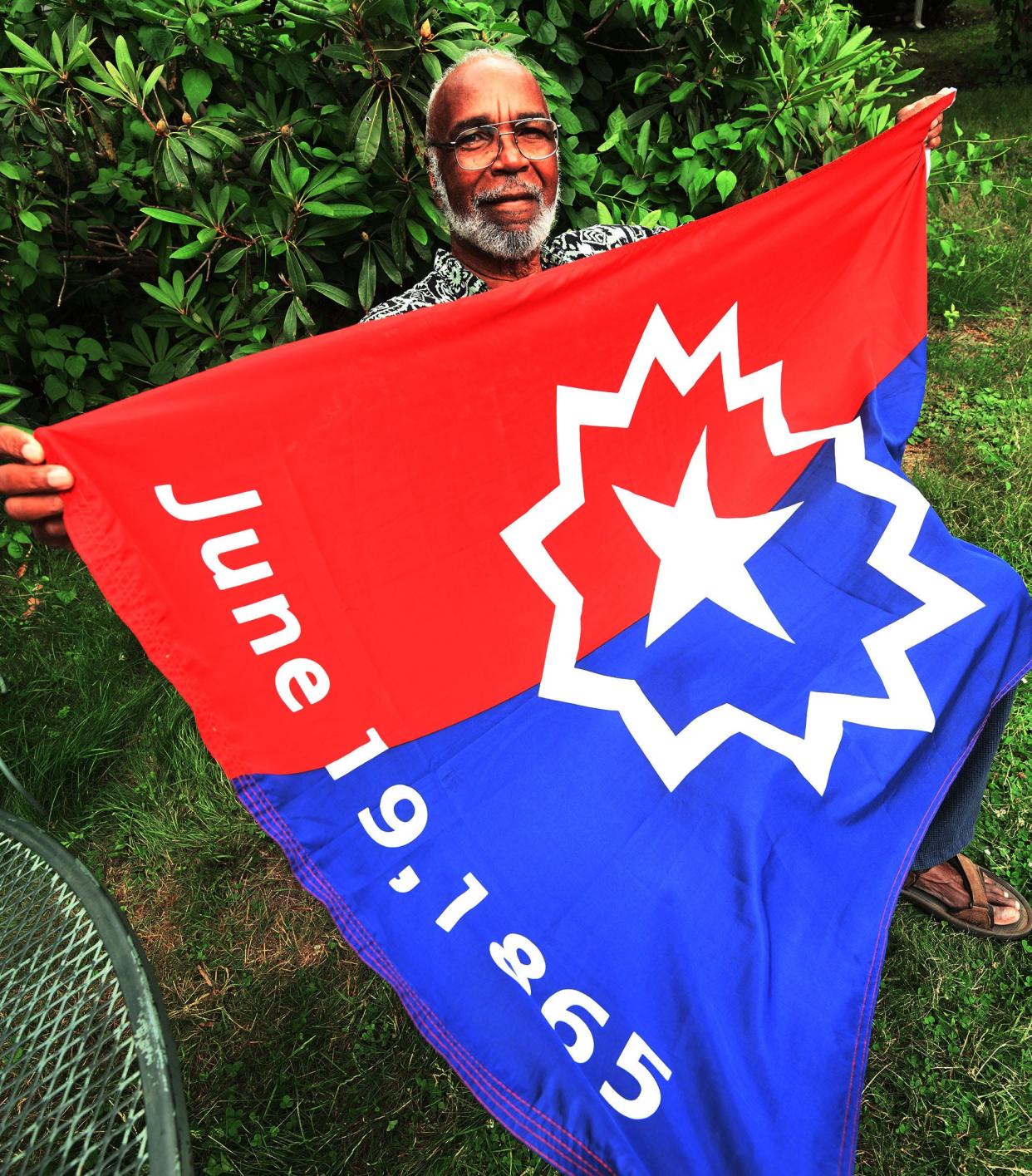Kewanee Community Relations Board: Here's what you should know about Juneteenth holiday

- Oops!Something went wrong.Please try again later.
The Kewanee Commission for Community Relations has provided this information explaining the Juneteenth holiday and its relevance to Americans.
"Many people in our country have questions about the new federal holiday, Juneteenth," said commission member Etta LaFlora. "Hopefully, this information retrieved from the history.com and savingplaces.org websites, will answer some of those questions. "
What is Juneteenth and why did it become a federal holiday?
Juneteenth (short for “June Nineteenth”) marks the annual holiday commemorating the end of slavery in the United States and has been celebrated by many African Americans since the late 1800s. In 1980, Texas became the first state to designate Juneteenth as a holiday. Since then, at least 45 states and the District of Columbia had moved to officially recognize the day. Because there was so much unrest in our country in recent years, there was a renewed interest in the day that celebrates freedom. The bill was passed by the Senate on June 15 to recognize Juneteenth and the House approved the measure the next day. President Biden signed the bill into law on June 17, 2021, and it became the 11th holiday recognized by the federal government, immediately giving federal employees the day off on an annual basis.
Most people believed the Emancipation Proclamation freed the slaves or ended slavery in our country? Could you explain the limitations on this very document?
On January 1, 1863, President Lincoln issued Proclamation 95, the Emancipation Proclamation. The Proclamation declares “that all persons held as slaves within the rebellious states are, and thenceforward shall be free” The Emancipation Proclamation did not free all salves in the United States. It applied only to slaves living in states not under Union control or the Confederate states. They were South Carolina, Mississippi, Florida, Alabama, Georgia, Louisiana, Texas, Virginia, Arkansas, Tennessee, North Carolina, Kentucky, and Missouri.
Many slave owners moved to Texas, because they saw it as a safe haven for slavery. There wasn’t a significant number of Union troops therefore slavery continued. Freedom finally came on June 19,1865, when the U.S. General Gordon Granger and some 2,000 union troops arrived in Galveston Bay, Texas. He announced General Order No. 3 “The people of Texas are informed that, in accordance with a proclamation from the Executive of the United States, all slaves are free.” That signaled freedom for Texas’s 250,000 enslaved people. Some slave owners withheld this information until after harvest season.
If the Emancipation Proclamation did not totally free the slaves and end slavery, how did they get their freedom?
On December 6,1865 slavery in the United States was abolished when the necessary number of states ratified the 13th Amendment. Section 1 of the 13th Amendment outlaws chattel slavery and involuntary servitude (except as punishment for a crime). Section 2 gives Congress the power “to enforce this article by appropriate legislation”. Congress required the former Confederate states to ratify the 13th Amendment in order to regain representation in the federal government.
The following year Congress passed the Civil Rights Act of 1866. This law invalidated the “Black Codes”. These were laws the former Confederate states used to keep the former slave’s dependent on their owners. The 14th Amendment, adopted in 1868, “barred states from denying equal protection of the laws”. The 15th Amendment, ratified in 1870, “prevents the denial of a citizen's vote based on race, color or previous condition of servitude.”
How was Juneteenth celebrated in the past and how is it celebrated today?
Men and women who had been enslaved, and their descendants, would make annual pilgrimages back to Galveston, TX. In 1872 a group of African American ministers and businessmen in Houston purchased 10 acres of land and created Emancipation Park, a place intended to hold the city’s annual Juneteenth celebration. The day was also celebrated by praying and having family gatherings. In 2021, the city of Galveston dedicated a 5,000 square-foot mural, entitled “Absolute Equality,” on the spot where General Granger informed enslaved African Americans of their freedom. In Atlanta organizers made plans for a parade and music festival at Centennial Olympic Park. Similar events are scheduled in Annapolis, Md.; Chicago; Detroit and Los Angeles.
What plans do the Commission for Community Relations have for this annual event?
Our commission is still in the planning stages for many community events; therefore, we are not sure right now; but we do want to increase awareness of the importance of this day, especially since it is a federal holiday and many agencies, offices and banks will be closed. Our plans are to have an event next year to celebrate this important day, Juneteenth.
References:
Absolute Equality Mural- Galveston, TX
History.com Website – Juneteenth
This article originally appeared on Star Courier: Kewanee Community Relations: Here's what you should know about Juneteenth

